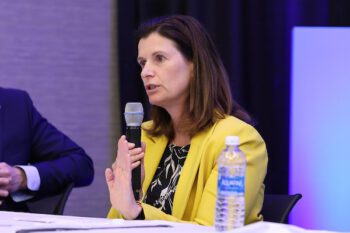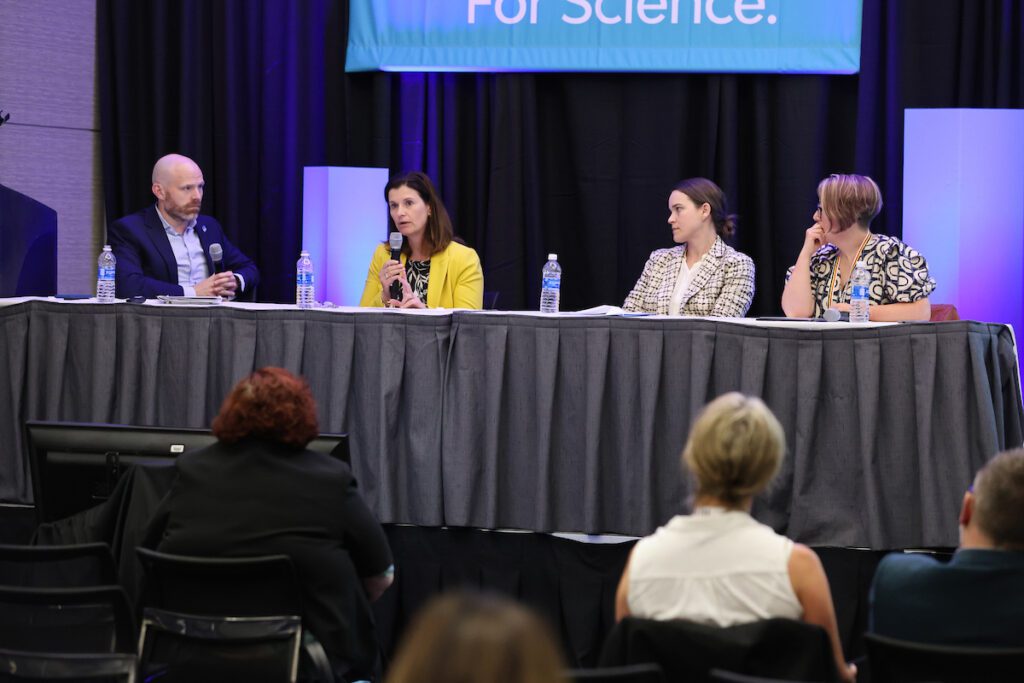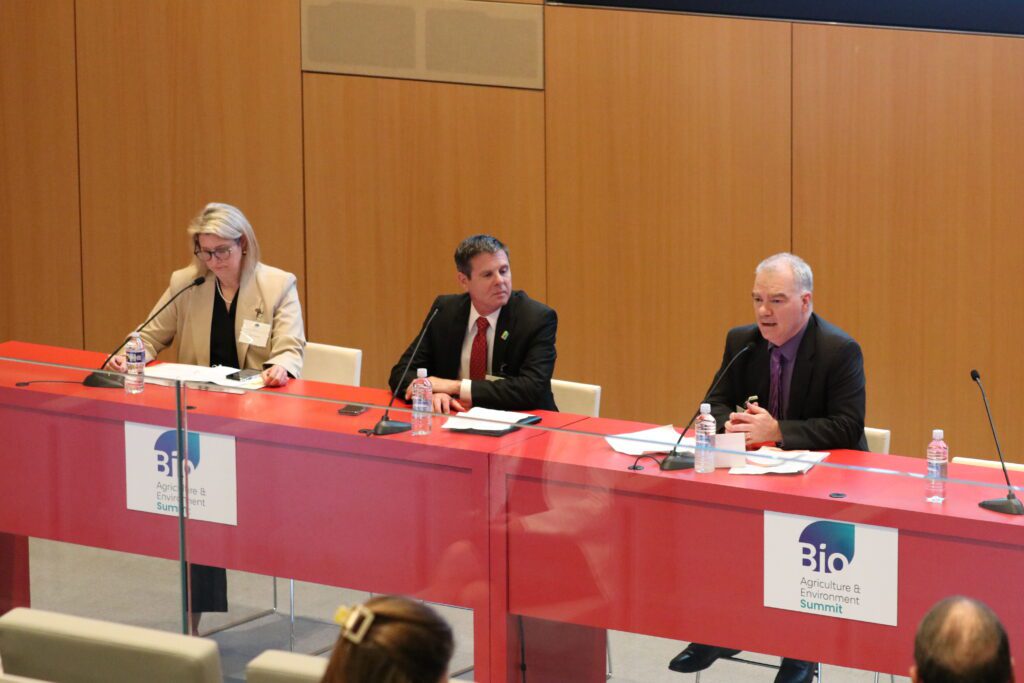Biopharma and biomanufacturing companies are working to address climate change, both in their own supply chains and more broadly, according to a June 7 panel of industry representatives at the 2023 BIO International Convention in Boston.
“Sustainability questions have become a predominant interest amongst foreign corporations,” especially in Europe, said John Murphy, Chief Policy Officer at the Biotechnology Innovation Organization (BIO). But now, sustainability’s importance is also growing among manufacturers in the United States, he said, kicking off a panel, BioPharma & Bio Manufacturing: Changing the Narrative and Addressing Climate Challenges.
How biopharma is addressing climate change


Wenny Raaijmakers, AVP for Manufacturing Operations at Organon, discussed the company’s broader strategy that goes beyond greenhouse gas emissions into water consumption, treatment, and waste.
Organon found a way to reformulate their chemical production process in order to scale down from 25 to eight steps, reducing solvent use by 70% and removing hazardous chemicals and heavy metals used in their processes.
Organon’s greenhouse gas emissions target is a 25% reduction by 2025. Within their supply chain, there are opportunities to meet this goal. Greenhouse gas emissions at Organon are mainly in utilities—pressurized air, steam, and, to a large extent, heating, ventilation, and air conditioning (HVAC). If HVAC was changed to a low-temperature system, energy consumption could be reduced, according to Raaijmakers.
Synbio leader Ginkgo Bioworks is working to change testing such as by replacing single-use pipettes with sound waves to move liquids, which would reduce the consumption of plastic, require smaller amounts of liquid, and reduce cost, explained Ginkgo’s SVP of Commercial Jennifer Wipf.
EuropaBio, one of Europe’s largest biotech trade associations, has always had an industrial biotechnology council. The organization recognizes a lot of companies are now incorporating biotechnology into all sectors, their processes, and products, including food, materials, and energy.
Biotechnology has become more sustainable than traditional manufacturing processes by playing a role in substantially reducing the number of steps involving hazardous material, replacing the use of resources requiring extraction from nature, and creating competition in which product complexity has become part of the design. Many active pharmaceutical ingredients, or APIs, are manufactured outside of Europe, explained Claire Skentelbery, Director General at EuropaBio. But microbial fermentation is a potential source for APIs. This could be both environmentally responsible and commercially competitive.
Centering sustainability
There are several hurdles in advancing biotechnology to accelerate the goal of zero carbon and climate-zero emissions. Ginkgo’s Wipf explained how time and money matter when controlling the pace of bringing new products to market. Ginkgo maintains a continued effort to reduce the time and cost burden, involving either a pharmaceutical product, replacement to synthetic fertilizers, or moving towards bio-based alternatives. Many solutions are necessary to invoke the probability of success within the unique challenges of each sector.
Raaijmakers added that “the biggest challenges for Organon, given the extent of industrial regulation, are their power to execute and the tendency to overcomplicate the process.”


Skentelbery highlighted the “importance of regulation in order to incentivize companies to make changes.” In addition, having a “globally level playing field to allow large capital investment that would encourage the change into a more sustainable manufacturing process.” Additional points included the “need to recognize sustainable [manufacturing] within taxonomy and purchasing programs, the necessity to align policies, and the importance of entire sectors making a unified change.”
President Biden’s recent executive order on biomanufacturing could move the American economy toward a bioeconomy. Potential obstacles inhibiting this change “include the plan for its implementation and ways to bring different parts of the ecosystem together to support the plans in a collaborative way,” Wipf explained. Governments around the world are struggling with the costs of healthcare. Raaijmakers suggested “there is a drive to reach out to low-cost API sources” as a result. The struggle is when “sourcing a local supply chain to maintain self-sufficiency versus helping the government address affordable healthcare issues around the world.”
Biomanufacturing will drive change


A challenge within regulatory oversight, according to Wipf, is “there are no industry standards or common ways to discuss the impacts of saving water or energy. Until this exists, it is difficult to link the changes to the impact being made. Many governments are becoming aware of the potential impact of biotechnology though are not yet making the necessary link to include it as a possible solution.” There remains a lack of understanding of the inclusive benefit of biotechnology and the knowledge to advance existing technology for the benefit of climate change.
Wipf concluded by saying, “Bio-based products, which align with our preferred quality of life involving food, transportation, hygiene, and healthcare, must be created before meaningful change can occur. Synthetic biology can contribute to cutting emissions and removing greenhouse gasses and already is.”
What is now needed is the willingness to understand its potential impact.




